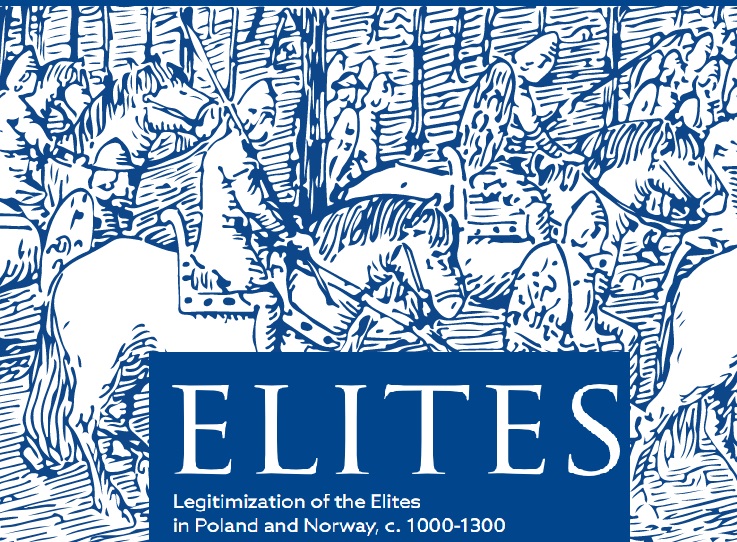
A series of six mini-lectures was published by ELITES – Symbolic Resources and Political Structures on the Periphery: Legitimization of the ELITES in Poland and Norway, c. 1000 – 1300.The project focuses on the forms and means of symbolic power the members of the political elites in the two peripheral areas of Europe (Norway and Poland) employed to manifest their privilege right to rule to their peers and subjects.
The mini-lectures (in Polish and English, with subtitles) by an interdisciplinary team from the University of Warsaw and the University of Oslo, in partnership with the Museum of the Origins of the Polish State in Gniezno, deal with the legitimacy of elites in Poland and Norway and discuss topics such as:
-
State formation in Poland and Norway in the Middle Ages
Early medieval Norway and Poland – what do they have in common, how do they differ? Where did the idea to juxtapose these two countries from the periphery of contemporary Latin Europe come from?
Hans Jacob Orning, professor at the Institute of Archaeology, Conservation and History at the University of Oslo.
-
Elites on the periphery: symbolic power and legitimization
How do we define medieval elites? Who belonged to them? What was their role in state formation? What symbols were used to signify belonging to an elite and the meaning and power this entailed?
Lecture in Polish with English subtitles.
Wojtek Jezierski, Assistant Professor at the Institute of Archaeology, Conservation and History at the University of Oslo, the School of Historical and Contemporary Studies at Södertörn University and the Institute of Historical Studies at the University of Gothenburg.
-
Piast dynasty and the political culture: a new perspective
Intradynastic disputes or conflicts resolved by armed force? What determined legitimacy in the fragmented Piast dominions at the turn of the 13th and 14th centuries? In his mini-talk, Marcin Pauk proposes to look at the political phenomena of the split in the context of Western European conflict studies, stressing the importance of ensuring peace and security for the legitimacy of power.
Lecture in Polish with English subtitles.
Marcin Pauk, Assistant Professor at the Department of History, University of Warsaw.
-
Friendship and networks of medieval elites
What were social networks and how were they formed, what determined their value and reach? What type of relations with the ruler determined one’s belonging to the early medieval elite?
Jón Viðar Sigurðsson, Professor at the Institute of Archaeology, Conservation and History (University of Oslo), Director of the Institute since January 2021. Member of the editorial committees of the series: “The Northern World: “North Europe and the Baltic c. 400-1700 AD. Peoples, Economies and Cultures’ (Brill), “Early European Research” (Brepols), ‘The Northern Medieval World: On the Margins of Europe’ and Medieval Institute Publications Western Michigan University.
-
Religion and the legitimization of medieval elites’ power
Religion, faith, liturgy, ritual in the legitimation of the position and role of elites. Mini-talk about the penetration of the sacred into social and political life, religious symbolism in the legitimisation of power.
Lecture in Polish with English subtitles.
Grzegorz Pac, PhD, assistant professor at the Faculty of History of the University of Warsaw, director of the ELITES project.
-
Church elites – a special kind of medieval elites?
Ecclesiastical and clerical elites in medieval Poland and Norway: how were they formed? What factors influenced their formation? What relations did they have with secular elites?
Lecture in Polish with English subtitles.
Krzysztof Skwierczyński, medievalist, professor in the Department of Cultural History at the Faculty of Arts and Culture Sciences of the University of Warsaw. Since 1997 he has been involved with the editorship of the Historical Review, holding the position of Editor-in-Chief since 2019.
The project Symbolic Resources and Political Structures on the Periphery: Legitimization of the ELITES in Poland and Norway, c. 1000 – 1300 (2019/34/H/HS3/00500) is funded from the Norway grants as a part of the GRIEG call within the Basic Research Programme – Programme Operator: National Science Centre, Poland; Programme Partner: Research Council of Norway. The project is carried out by the University of Warsaw (Faculty of History) and the University of Oslo (Department of Archaeology, Conservation and History).
Gathered by J.M.C.
